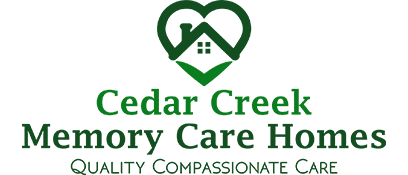Dementia is a complex disease that can affect daily living in all areas. Over time, it can severely alter the brain, resulting in cognitive decline and memory loss. If someone you love is experiencing dementia, it may be time to seek support — but a basic assisted living community might not be the answer.
People with dementia need a unique form of care to ensure their safety and comfort, and this care may be better provided by a memory care community. Here’s how to determine which form of care is right for a loved one.
Dementia Care Decisions: Assisted Living vs. Memory Care
Assisted Living Facilities: Beyond Basic Care
Assisted living communities are long-term care facilities. They give residents opportunities to exercise their independence while also offering help performing activities of daily living.
An assisted living team typically provides seniors with housekeeping help while organizing meals, hobbies and socialization. This is ideal for residents who can communicate their needs effectively but may need some help with day-to-day tasks. The extra support can lead to significant improvements in quality of life.
Memory Care Units: Tailored for Alzheimer’s and Dementia Patients
Memory care communities are tailored to assist seniors living with dementia or Alzheimer’s disease. Because the disease can lead to memory loss and confusion, these residents often require specialized care.
As the illness progresses, seniors may have trouble remembering how to perform daily tasks. Memory care units are meticulously designed to reduce anxiety and enhance safety. Staff members at Alzheimer’s care facilities also tend to have more training to prepare them for the complexities of supporting patients with dementia.
Safety and Environment in Senior Living Communities
Assisted Living Residences: Building a Safe Environment
Keeping residents safe is a top concern for assisted living communities. Many facilities are equipped with a variety of safety features to prevent injuries. These often include things like in-room emergency systems that seniors can use to alert staff members. Most residences also utilize a daily check-in system to ensure patients are getting the care they need.
Memory Care Communities: Designing a Secure Haven for Residents With Dementia
While safety is a key component of assisted living, memory care units employ advanced techniques to account for the unique needs of their residents. These include keypad entries, obscured exits and alert systems to announce persons entering or exiting the facility.
Attention to safety is built into memory care communities from the ground up. Visually stimulating environments can be stressful for those with dementia, so most facilities are decorated with softer colors and simple signage. There’s also a heavy emphasis on minimizing clutter, which improves physical safety and can also help calm the mind.
Staff Expertise: Trained Staff Make the Difference

Assisted Living Training: General Care for Senior Residents
Assisted living staff members are trained to support residents in their daily activities, whether it’s getting dressed or remembering to take medication. Many care professionals have extensive experience caring for seniors, learning to anticipate their needs and building healthy connections that will make their stay more comfortable overall.
Memory Care Training: Specialized Care for Dementia and Alzheimer’s Disease
Caring for patients with dementia or Alzheimer’s requires a higher level of training to make sure staff members can handle the complexities of each disease. Beyond general activities like housekeeping and scheduling medical appointments, memory care staff must recognize the symptoms and cycles of the illnesses.
These facilities also employ a higher number of specially trained caregivers to ensure each of them has the time and energy to provide residents with the greatest support. A higher ratio of caregivers to patients means all patients have the help they need around the clock.
Transitioning Your Loved One to Memory Care
Making the Move: Tips for Transitioning a Loved One With Dementia to Memory Care
Moving a loved one to a memory care unit can be a tough shift, even if they currently reside in an assisted living facility. As the disease progresses, it may be harder for them to process interruptions to their routine. But there are a few ways you can ease the transition.
Making regular visits to the care facility can give a senior some indication of what to expect. This can also be a good time to start developing relationships with caregivers. Once your loved one is settled in their new home, having access to the correct level of care can help them feel more comfortable with the space.
The Cedar Creek Difference: A Unique Memory Care Community
Person-Centered Approach: Prioritizing the Needs of Dementia Patients
At Cedar Creek Memory Care Homes, we’ve adopted an approach that puts patient needs above all else. Each of our facilities is designed to soothe and comfort, making residents feel truly at home among our specialized staff.
No detail is overlooked by the team, who serve up delicious meals and happily take care of housekeeping and maintenance chores. We also offer unique supportive technology that residents can use to stay connected with family members, no matter how far away.
Why Choose Cedar Creek: Embracing a Vision for Specialized Dementia Care
Every day is a new adventure at our highly dementia care facility. The Cedar Creek team puts their creativity to the test to organize fun activities and build connections so every resident can live comfortably.
We opt for smaller environments instead of massive institutions, which can inhibit truly personalized care. In addition to meeting patient needs, we also work to build a community we can be proud of.
Charting the Best Path Forward: The Clear Choice in Dementia Care
Memory Care’s Promise: Prioritizing Specialized Care for Residents With Dementia
For people with dementia, having the right level of care makes all the difference. At Cedar Creek, we’re equipped to provide each resident with the support that’s right for them.
Life at Cedar Creek may be the right choice for your loved one. Reach out today to explore more of what sets our dementia care homes above the rest.





